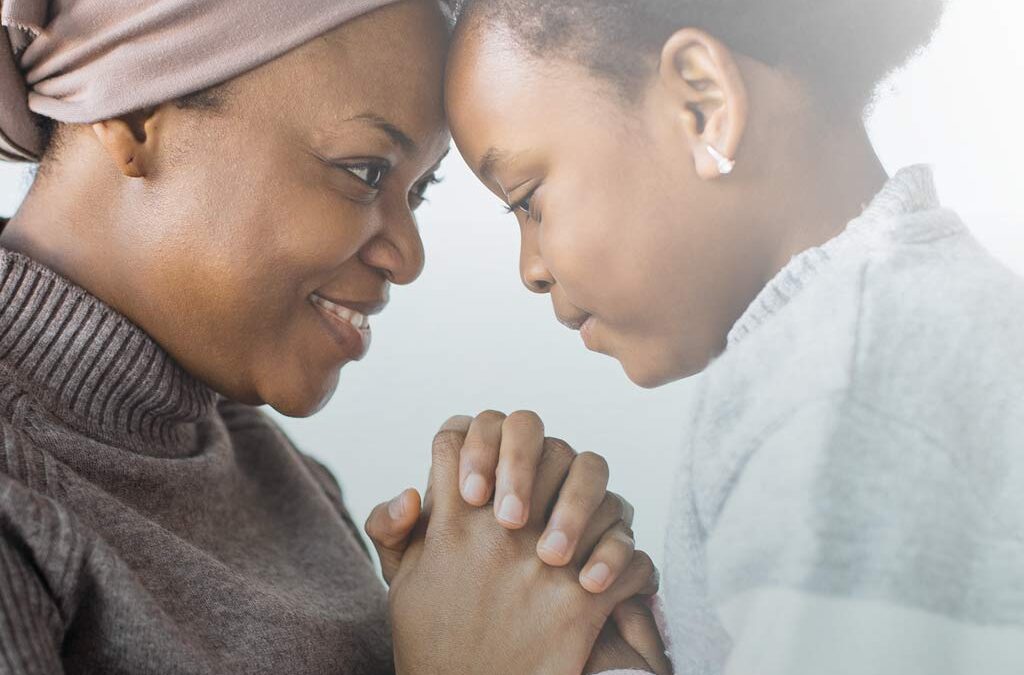
Newly Released Who We Are Video
We just completed a video showcasing who we are and what we do. We hope you find it informative and consider sharing with those you feel may benefit.

We just completed a video showcasing who we are and what we do. We hope you find it informative and consider sharing with those you feel may benefit.

I’ve written to you before and I am confident I will write to you again about society’s impact on our lives. My own lived experience, professional research, and the work of others have brought me to one conclusion; society has an agenda that has very little if anything to do with us as individuals. As a woman, I’ve expressed the oppression I have felt as a woman to be small, polite, obedient, submissive, quiet, and filled with servitude (Brave Not Perfect). It was almost two years ago I wrote “Too Strong for Who” and the words in that blog are still true today.
As the years have gone by, I’ve been able to stand back and look beyond my own gender, race, and socio-economic status. I know my privilege and restrictions as a white, middle-class, woman. I will say loudly and clearly that I do not understand the experience of others because I have not lived their lives. However, in stepping backward I am able to see if society has its preference we all have a submissive, suffocating role to fill. In the creation of capitalism and the nuclear family the roles society has for us were created far before our inception.
Why am I writing this to you? You might be thinking I have a baseball bat (or ax like at my trash the dress party) against modern life. I don’t, but I have some real problems with how we are living. I also don’t have a single loved one who has not encountered serious problems in their life because of societal standards. We are living in a society where profit and image are held above our humanity yet our humanity is pleading to be heard.
Prior to the pandemic, alongside almost everyone else, my friends and I were buzzing around “fine.” We were following all the latest trends for raising children, running those children everywhere they needed to be, keeping our weight down, complaining about when we couldn’t keep our weight down, doing 99.9% of all domestic work in our homes, some of us were working, some of us weren’t and didn’t have access to financial freedom, and the list goes on and on. Yet during this time after dozens of playdates, morning coffees, and afternoon margaritas not one of us said, “You know what, this shit is crazy, who the hell made the rules of this game, and how do we quit?” Instead, we took the badge of motherhood and being a wife with honor and buzzed right alongside the beehive.
In the aftermath of the pandemic, I have spent many nights with friends cozying up with a glass of wine listening to story after story of “not this.” As we sit and honor each other during these talks I sit with the dichotomy of deep regret and gratitude that it took an international pandemic to unearth our way of life.
I have always been a child who learns the hard way. I poured bacon grease over my hand once just to prove to my mother that I can stabilize the jar while pouring out the hot oil. You cannot in fact do this safely. The lessons that came from the pandemic to my friends and I felt very similar. Like a lesson we could have learned from each other painlessly. The difference was that we did not have a wise mother telling us what was safe, good, and right for us. Instead, we had a world telling us exactly the box we needed to fit into in order to find our happiness. No wonder we got burned.
The pandemic itself became unearthing for better or for worse. Keeping up our lives as they were before was not sustainable. In hindsight they would have probably crashed at some point we would have all just had to have reached our own trauma limit instead of collective trauma. In a way, the pandemic brought a gift, the gift of, “not this.” The “not this” looks different for each of my friends that I cozy up next to, but the words bring the same truth; I am not fully myself and I want above all else to be gloriously human.
In their stories, my friends share loneliness, burnout, desire, crumbling perfectionism, toxic relationships, mental health breaks, and the list goes on and on. Yet this time instead of pushing our strollers while we pushed our feelings down we’ve been able to say to each other, “I don’t want this anymore.” I am honored each and every time a friend shares their truth with me. While our experiences vary, our struggles are almost always the same. I’m suffocating in this life, I need to breathe and just like the Little Mermaid, I want more. Unlike the Little Mermaid, the more is not a prince charming.
In these conversations, my friends don’t know what is next. I sure as shit did not know what was next two years ago this time. I’m still not quite sure. That part is OK. The profound impact of “not this” is the first step towards integrity towards ourselves. There is too much to shed, too much to unpack, and to learn about ourselves, to truly know what it is we want. How could we, with all the noise of the world?
As I’ve watched my beautifully vulnerable friends come to the realization that they want more out of their lives I’ve seen each of them bravely stand up for themselves. The standing is always the same. “Not this.” Each friend is flush with joy they have come to these words and full of rage about what has brought them here. Perfect, they are absolutely perfect. Through their powerful words and willingness to be open to the unknown, they are walking themselves back to their humanity.
I’m grateful to be walking beside them loudly declaring, “not this,” well before I softly fold into myself and say, “ah, yes, this.”
Xoxo,
Jessie Cooper

Sometime in September, I was introduced to the best-selling author Dr. Becky who recently authored the book “Good Inside.” I am trying to remember if it was on a podcast from one of my soul teachers or if it was from a friend as I complained for the millionth time about a tantrum. I honestly don’t know. It wasn’t the tantrum itself (OK sometimes it’s the tantrum itself), but it was the fact I didn’t feel I was in alignment with my own peace at the time. Last week I wrote to you about honoring your peace yet I was struggling with my own peace when my sons became dysregulated as all children do.
Of course, there are moments when I yell, when I mess up, and wish that I could have done something differently. All parents do. However, it wasn’t that I felt out of control around my children or that I was harming them in any way that made me feel out of my peace. I simply felt that there was a better way to navigate their big feelings without constantly leaning on discipline. I couldn’t find my peace in the thought, “I should be in control of my children” or “my children need to be good.” Each and every timer I set for a time-out didn’t feel like growth for them or parenting. It felt miserable. Enter Dr. Becky and her brilliant work.
In her work, Dr. Becky has one core belief she shares with her readers, “everyone is good inside.” This concept on paper felt validating of my own belief and it also triggered a lot of fears. You see holding the belief that everyone is good inside left me in relationships, extended family, and social groups well past their expiration date. Up until my early thirties (I’m 35 now…a newbie) I gave pretty much everyone a free pass while holding this belief. In creating the boundaries that have led to regaining my peace I created a new boundary to stay away from people behaving in harmful ways. Reopening this boundary felt like a hard no for me. Nope. Not doing it. But, when I look at my darling son’s faces, I know in my soul that Dr. Becky is right. We are all good inside.
Lucky for me, Dr. Becky doesn’t stop at the belief that we’re all good inside. She builds on it and teaches us how to create boundaries for our children. This felt like a relief because while it doesn’t address the boundaries I’ve built in my own life, it validated the need to uphold safety at all times. As I dove into her work and began practicing it at home a wave of peace came over me.
Dr. Becky teaches that when young children are throwing fits, having tantrums, or saying unkind words, it boils down to the fact that they are dysregulated. Not that they are disobedient, disrespectful, or bad little kids; they are good humans having a hard time. She then goes on to talk about the importance of being a sturdy leader for your children as they are dysregulated which means keeping their bodies safe. Contain the fire! Tell your children that they are allowed to feel their feelings, to disagree with you, to rage… but it is your responsibility to keep them safe.
When the waves of dysregulation slow and my sons are able to calm down I have always talked about emotions to give language to their experience. Dr. Becky also validates this practice and writes about the importance of narrating to children their experiences after their big emotions have settled. This tiny step is the foundation of teaching children to keep their peace and that their big emotions do not define them. Instead, their big emotions are simply part of being human and they need help learning how to express them. I believe that this tiny step builds shame resilience, which in our home is a core family value as we follow the teachings of Dr. Brene Brown.
It has been about two months since I picked up “Good Inside,” and began shifting my own practices as a parent moment by dysregulated moment. I replaced time out with a “do it differently spot,” where we sit and breathe through the waves of big emotions. I began narrating what happened before the boys fell into a fit. Narrating, “you really wanted a waffle, and mommy gave you a cinnamon roll, that was tricky.” I also narrate when I am having a hard time so they do not assume any responsibility for my own stress and develop codependency. “The Pumpkin Show was loud, you wanted toys from the games we couldn’t win, and got stuck in the funhouse. Mommy was having a hard time too.” After the waves of emotions settle for all of us we settle down and I repeat, “wow, that was hard, how can we do it differently next time?”
I am not going to lie to you. You might think as you read this as you enter my house you will inhale lavender, soft music will be playing in the background, and we will all be calmly navigating our emotions while honoring our peace. Some days it is quiet here, but we are after all human, and big emotions are well known in the walls of our farm. This past Sunday by 9 am my children had broken each other’s block house, changed into two different costumes, had a do-it-different moment for hitting, requested face paint, played Candy Land, the dog got out in the back pasture, and tears flowed readily. I was short on patience and could feel myself getting snappy. At that moment I asked myself, “what are you choosing above your peace?” It was the age-old narrative that parents should be able to control their children. No thank you, not interested. I want to raise good humans who can make choices that are right for themselves and their world.
At 9:05 I called a family time out, asked Henry to pick 10 good books, and we piled into my bed to read. “Wow, that was a lot, we’ll feel better if we can sit down and do it differently.” Book after book, kiss after kiss, we settled back into our peace. I am sure later in the day someone cried. Tree climbing and being stuck is a common theme around here. But, we held our peace after having a hard time.
Dr. Becky was the reminder I needed that when children are having big emotions it’s not a problem. The problem is missing skills and the need for boundaries. It’s Applied Behavior Analysis paired with emotional regulation. The combination at least in our home is the foundation for raising good humans in a way that brings me back to my peace, moment after parenting moment.
Xoxo,
Jessie Cooper

Somewhere this fall I realized that we’ve all been waiting for life to “go back” to the way it was before COVID-19. That our country and world are so inundated with stress that we have been holding on to this desperate thought of nostalgia. That if things could just be like they were before our stress would melt away and we could all breathe a little. As I watch my own life and my loved ones collectively navigate what seems like tragedy after tragedy I’ve finally come to realize that waiting for stress to leave the external world isn’t going to happen as much as I would like it to. The only alternative is to seek peace, firmly plant ourselves, and say, “not this,” to everything that steals us from our own integrity, and “darling I am so sorry,” when tragedy strikes.
Exactly two years ago I made a vow to myself to never abandon myself for anyone else again to honor my own peace. In theory, this felt like an easy choice, I would stay true to myself no matter what life threw at me. At the time I had no idea of the monsoon that would come with my divorce or the continued challenges of running a company through COVID-19. I also didn’t realize that staying true to myself didn’t just mean on a large scale, it meant small choices each and every day that allowed me to stay in integrity with myself. I’m going to be really honest with you, if I was being graded on this I would probably get a C- at best. Trying to make the right decisions in a social world, through a divorce, and as the head of my company is no easy feat. Or, if we try that again, making the best decisions for myself as a human being is no easy feat.
Why? You might ask. Why would it be hard to say yes to yourself above everything and everyone else? Well, in short, shame, fear of disappointing others, not feeling like enough, and oppressive systems (Ok society) come to mind. I don’t operate in a vacuum and neither do you. Staying true to myself in my home, where no one else is with me is easy. I can tuck into my house for days, ignore all texts and calls, and do what my loved ones now dearly call, “hippie shit.” I’m in total bliss as I’m lighting candles, saging the home, working on a new recipe, or watching endless comedians with kittens (ok, ok, they were free…) curled up on my chest. Life is good, I’m one with myself, and at peace. But then, inevitably, at some point I have to come out of this bubble of bliss. Most of the time for my children, in a choice to see people I love, or for my own work. When I come out of this bubble staying true to myself isn’t always as easy.
As I peeked out of my cocoon of peace, initially my thoughts were, “the world is on fire,” we just need to wait for this to be over, and then I can be at peace. Then, in the spring of 2022, one of my clinics actually had a literal fire and now I’ve banned the words, “fire, or dumpster fire,” from the company. The world seemingly continues to hand my loved ones and I an extremely hard deck of cards. For years we’ve all been waiting for the stress of the world to go away and now I think we’re all just holding our breath for the next thing to happen. No wonder I like my Netflix, kitten, and wine cave so much. But, in the last few weeks as more tragedy befell my loved ones (and after a night laying on the floor surrounded by candles, Dametrius peeking in, “do you want ice cream?”) I realized that it’s not what comes for us, it’s who comes to us and the kindness we can give to our own hearts no matter what.
We can’t stop tragedy and hardship. Yes COVID was a big one, but the amount of loss I’ve watched my loved ones live through, as well as myself, can feel unreal at times. In those moments it’s not the fear of pain that will carry us through, it is the willingness to be carried with the love of others until we can give that love to our own hearts. To know that no matter what life throws at us, we are worthy, whole, bruised, but not broken, and are simply doing our best at this thing called life.
The challenge for me is this: if the world isn’t going to get easier simply by waiting for it to “go back” or for COVID to “be over” how do I continue on the path of choosing my own peace? How do I stay in integrity above all else?
I’ve come to accept that pain and tragedy are part of life and I cannot avoid it coming for me or my loved ones. This type of tragedy is what the natural world brings to us, it is loss at its core. I’ve also come to accept that when pain and tragedy come because of anything in our social world I have a choice. I can either choose to stand by or back and allow myself to either contribute to the problem or I can turn away and choose a different way. Choice by choice, as social problems present themselves to me I can choose to say “not this” over and over again until I find my path back home to my peace.
Our world has hurt and it is hurting. Waiting for peace won’t happen, but choosing peace is possible. It’s not the easy path to say no to everything that does not serve you, to say no to injustice and greed, but each tiny decision that allows you to say yes to your own soul is one more tiny U-Turn (Tara Brach) back to your own peace.
As you navigate these choices for yourself and put down all that does not serve you, start with this little question “what am I choosing above my peace?”
Xoxo
Jessie Cooper

Growing up my grandparents lived on a farm in northeast Ohio about an hour from my parent’s home. During my childhood, the farm was my happy place for so many years. As a child fitting in was not my strong suit and I didn’t have the wisdom I possess now that fitting in is never the goal; belonging to our own hearts is. Whenever we visited my grandparents I felt at peace against the chaos of the world. I suppose I knew a little about belonging because on the farm I felt it.
As a child every summer my parents would take us for a week to learn and live with my grandparents. My grandma Virginia was a beautiful quilter and wanted to teach all her grandchildren to sew. Kristen, my sister, took to this quickly and to this day has a quilt rack in her office. Me? I am perfectly capable of sewing (thanks grandma) and it literally makes my stomach sick to focus on details that small. To this day I also still take my sister my mending pile.
To escape the task of sewing I trotted at the boots of my grandpa Bob and did whatever chores he was doing. Each morning before the sun would rise we would get up and put on our “shit” boots then head down to the barn. I would pull the hose bringing water to the chickens, pigs, sheep, cows, goats, ducks, and my favorite; the cats. We would scoop food together, muck out stalls and make sure all the animals were ready for their day. After our early morning activities, my grandpa would pour me a bowl of cereal, slap it onto a metal tray, and we would watch whatever farming show was on in the morning on the shaggy carpet of their living room. Throughout the day I would drag buckets of water to my grandpa as he planted and by night we would rock on their porch swing eating popsicles made from my grandma’s grapevine.
I was in love with this life. Walking through the fields, watching the animals, nursing bottle-fed sheep in the morning, and kicking off my very important shit boots right alongside my grandpa. There was never a moment when there wasn’t something the earth needed or wanted. My grandma told me on a farm that the work is never done, it is waiting for its keeper. When summer ended we would visit the farm about twice a year to see my aunts, uncles, and cousins. Traditions of their own came with the holidays and gathering with my family, while different from me, filled me with quiet gratitude.
In the spring of 2020, my marriage was at a critical juncture and at the same time the world shut down for 12 weeks. I was at home terrified daily for my business in the first days of the pandemic and I knew in my heart that something had to change in my life. I had spent the last decade in Illinois building my business, making friendships that will last a lifetime, and becoming a mama to three beautiful boys. At the time I didn’t know my marriage would end but I did know I needed a happy place and missed my family dearly. I then did something that to this day I don’t know if it came from wisdom or fear. I bought a three-acre farm in Johnstown Ohio sight unseen in 24 hours. My children and I moved to the farm in August of 2020 and within a month I separated from my ex-husband.
The past two years have been nothing short of painful but they have also brought me incredible joy. I am a woman who always has to know why and to this day I’m not really sure why I’m here in Johnstown or bought the farm. The only thing I can settle into is this is our healing house. The family who built this house put such love, care, and detail into the home. Each room of the home has a detail that reminds me of beauty and each acre of the land has something new to explore. When I bought the home, I slid open their junk drawer to find a piece of paper to say thank you. Instead, I found this, “Have the Heart of A Shepherd and the Spirit of a Warrior.” It felt like my soul’s mantra and is now on a painting in my office. This home has wisdom I do not yet carry.
When I bought the farm I thought I could replicate the farm my grandparents made for our family. I imagined the 4th of July with my cousins, weekends with my aunts and uncles, and a deep gathering of family members. When I left my marriage some of my extended family turned on me claiming I was either lying about the reasons I was leaving my marriage or breaking God’s plan to follow the man in my marriage. The rest of my extended family either went silent or attacked my beautiful father for supporting his daughter.
It wasn’t the loss of my marriage that broke my heart, it was the loss of my family. It wasn’t until what felt like betrayal and grief passed that I realized I couldn’t lose what I never had. I accepted that I loved my family and they did not love me in return and that was OK. This allowed me to choose the family I deserve versus being hurt by the family I was born into. I know I’m more than the pain they attempted to bring to me and still attempt to bring by spending time with my ex-husband spinning hateful stories about me and my dad.
On the farm, I’ve learned a great many things about myself, how to be present, and how to love what is right in front of me. I have also learned that one week in the summer does not in fact give the skill sets you need to actually run a farm. Turns out I really dislike vegetable gardens, have killed my darling black raspberries, and at five Henry has a better green thumb than me with his pumpkin patch and sunflowers. It also turns out that finding time to add any animals to the farm feels like a task I’ll never have time for but something my soul is still curious for. Baby steps. This fall I’m going to take horseback riding lessons and actually take Simon, my boxer, back to obedience school instead of buying a puppy. The farm has after all taught me to pay attention to what is right in front of me.
Each day I try to find a piece of time to care for the land or the home. Some days I fail at this and some days I remember. But like my grandma said, my farm is always waiting for its keeper. Life is not what I expected it to be when I moved in night from Illinois to Ohio. There are days I still doubt where I am, what I’m doing, and if I’m making the right choices for my children. In those moments I smile gently to my soul reminding myself to bloom where I am planted
Xoxo,
Jessie Cooper